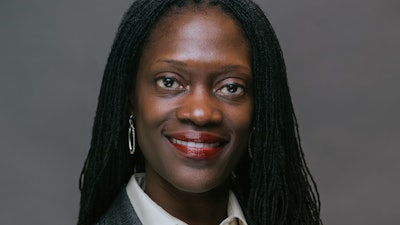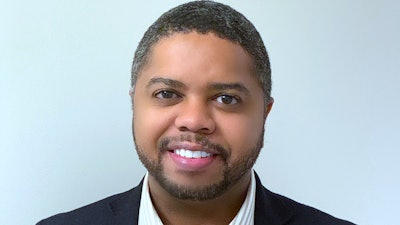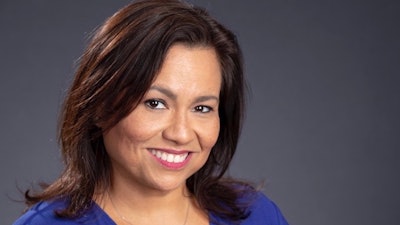Access, affordability, and free speech will continue to make headlines in higher education.
Efforts by the Biden administration to pass a rule on student loan forgiveness was a major story from 2023 that will again be front and center in the new year.
Dr. Robert Kelchen, professor and head of the Department of Educational Leadership and Policy Studies at University of Tennessee, Knoxville, says the administration will likely reintroduce the rule in 2024 using a negotiated rulemaking process.
“That rule will likely, immediately get challenged in court,” says Kelchen. “Meanwhile, the Biden administration is implementing a much more generous income-driven repayment system for federal student loans that could be much larger than what the Supreme Court struck down. That, too, could end up in court.”
Other issues in the news will include diversity, equity, and inclusion (DEI). With the U.S. Supreme Court decision rejecting race conscious admissions at colleges and universities, institutions will try to find ways to provide access for underserved populations while accommodating the current parameters. Also, many private colleges will continue to try to financially rebound from the COVID-19 pandemic.
Complex issues
Dr. Valerie Kinloch, president of Johnson C. Smith University — an HBCU (Historically Black Colleges and Universities) in North Carolina — concurs that student debt and loan forgiveness will be big stories. She adds that HBCU institutions have long dealt with being underfunded. Financial issues, along with enrollment, retention and graduation, will be newsworthy also.
 Dr. Valerie Kinloch
Dr. Valerie Kinloch
“Republicans and some Democrats aren’t happy with campus protests about the Israel/Hamas war, and many Democratic-leaning faculty don’t feel comfortable speaking up on issues if they work for red-state public universities,” says Kelchen.
There will be ongoing coverage of the end of affirmative action in admissions, says Dr. Stella Flores, an associate professor in the departments of Educational Leadership and Policy and Curriculum and Instruction at the University of Texas at Austin. “Depending on what state you’re in, you are feeling it in a much more pronounced and profound way,” says Flores.
“Another is a restriction on language and pedagogy; governing our vocabulary on what we can say is equitable or inequitable in our classrooms,” she continues. “Ultimately, it’s an attack on knowledge and learning.”
Dr. Su Jin Jez, CEO of California Competes: Higher Education for a Strong Economy, says she sees the tightening fiscal climate as a high-profile story for 2024. “This backdrop underscores the urgency of addressing key issues around opportunity, such as increasing college access, addressing college affordability, strengthening pathways to meaningful employment, and ensuring implementation fidelity for current higher education policies and initiatives,” says Jez.
Dr. Fred A. Bonner II, who holds the Wilhelmina Endowed Chair in Educational Leadership at Prairie View A&M University, an HBCU, brings a different perspective. Bonner says student mental health will be newsworthy in 2024.
Another area of concern for Bonner is related to student learning. “What is learning now? Where does it take place? Who delivers it? Can you truly learn through artificial intelligence means? Do you have to have student learning take place in brick and mortar, in a classroom context?” asks Bonner.
As academics and institutions further explore online and hybrid options, the value of face-to-face learning will be put on the hot seat. “We’ve had a lot of conversations about learning — how it’s delivered, what it is, what’s the best modality for it,” Bonner says.
Current research
Kelchen is working on several projects about state and local funding for public higher education and the effects of that funding on students and institutions. He notes that wealthy private colleges and many public flagship universities are flourishing, but much of higher education is struggling.
“Expect the number of college closures to keep slowly ticking up,” says Kelchen.
Bonner has his own book series with Routledge, titled Diverse Faculty in the Academy. He is currently working on an edited book — the fourth in a series — Belonging in Higher Education: Perspectives and Lessons from Diverse Faculty, which will be published this spring. Bonner will also continue to edit the biannual Journal of Minority Achievement, Creativity, and Leadership, published by Penn State University Press.
Flores’ current research includes a financial aid experiment that practices culturally attentive dissemination practices for financial aid scholarships. “What we’re seeing now is you can offer all the free tuition in the world to selective colleges, but low-income and minority students are not taking them up,” Flores explains.
“Part of our hypothesis is that we’re not reaching out to them in culturally attentive ways,” she says. “We’re not sending them the right materials in Spanish. We’re not visiting homes. We’re not letting them know in ways that are properly effective that there are leaders that look like their communities in these institutions. Our experiment seeks to create more culturally attentive practices to see if that increases enrollment into selective institutions.”
 Dr. Everrett A. Smith
Dr. Everrett A. Smith
“My research attempts to dismantle anecdotal conversations and assumptions about historically marginalized communities and their pro-social orientation toward higher education philanthropy,” Smith says.
DEI
In terms of newsworthy issues, Smith says, as colleges and universities wrestle with their positions on investing in DEI initiatives and policies, some state legislatures may muddle that work by tying it to state fiscal support.
“Tennessee prefers the term ‘access and engagement’ instead of DEI, and a number of conservative-leaning states have encouraged public institutions to make the change in language,” says Kelchen. “These colleges will try to find a way to support diverse students as much as possible while also being mindful of pressures not to have any programs be on the basis of race.”
Kyle Bibby, interim chief of Campaigns and Programs at Color of Change, an online racial justice organization, says in a post-affirmative action world, individuals and organizations must be hyper-focused on securing protections for Black students and applicants. “We have called on universities, colleges, and corporate employers to make bold commitments to enrolling and hiring Black applicants and investing in retaining those applicants and students beyond the acceptance process,” Bibby says. “This is the work we will continue to expand on in 2024.”
 Kyle Bibby
Kyle Bibby
Bonner now focuses on inclusive excellence. “The way that I have done that through my work is to focus on populations who have been marginalized, who have been underrepresented, who represent these diverse backgrounds,” he explains. “I’ve not surrendered any of the content, any of my passion, any of my mission vision purpose, but I have shifted in the ways that I talk about it.”
DEI is central to the mission of community colleges, but that doesn’t make them immune from current struggles. Dr. Thomas Brock, director of the Community College Research Center at Teachers College, Columbia University, says community colleges will continue to work to ensure access to higher education for underrepresented students and focus on strategies for student success and completion.
Community colleges are still working to build back enrollment, which declined significantly during the pandemic. Brock says to look for news stories covering how institutions respond to the end of pandemic relief funding. “Thanks to federal relief funding, community colleges were largely able to maintain instruction and services for students and respond to the new needs that arose during the pandemic,” he says. “Now that this funding has ended — and with enrollments down — there is a risk that community colleges will have to cut academic programs and services.”
The Supreme Court’s decision on affirmative action will provide positive attention for HBCUs, both Bonner and Kinloch say. Bonner notes that minority serving institutions (MSIs) will be important touchstones, particularly as states seek to restrict race-related fields of study. HBCUs have been the drum major for intellectual justice and achievement for Black populations, and now they are leading an even larger band, he says.
“The decision to overturn affirmative action and to de-emphasize race in admissions processes can disadvantage so many students,” Kinloch says. “JCSU, like other HBCUs, offers our students safe spaces to engage in critical dialogue, culturally affirming experiences, and transformative learning that values who students are, what their experiences are, and what students bring with them from communities near and far.”
Flores says MSIs must be at the forefront of every conversation. “They really are the ultimate leaders for civil rights, and they need to be respected as such,” she says. “We need to listen to them.”
Presidential election Dr. Stella Flores
Dr. Stella Flores
With a U.S. presidential election on the horizon, restrictions on funding for programs such as Africana/African American Studies will grab headlines. Kelchen predicts that more states will follow Florida’s lead.
The attacks on Black stories, authors, and history will be met with resistance. “Parents, teachers, students, and organizations are standing in defense of Black history,” Bibby says.
“In navigating the presidential election year, California Competes remains agile and responsive, adapting our priorities to align with the evolving political landscape and continuing our commitment to enhancing higher education and workforce outcomes for all Californians,” Jez says.
For 2024, California Competes’ priorities are housing, financial aid for student parents, improved data on student parents, workforce development and economic mobility, and online education.
Kinloch anticipates debates surrounding the overall purpose and function of higher education. Issues that will interest JCSU faculty and lead to research may include the value of higher education in a changing national and global landscape.
“Often, we separate politics from education, but the way legislatures are controlling higher ed, the way some state legislatures are restricting the most basic of rights for low-income students, minority families, how we vote and who we vote into power is going to be as important as literacy,” says Flores. “We need to make higher education a priority. We’re going to have to vote the people that support equity into office.”
Bonner examines another aspect of this debate, saying employment and career will be discussed. “What is the return on investment for students who are actually getting a college degree?” he says. “There are so many pressures — particularly with rising student debt — for folks to actually come out with a skill set, transferable skills that will translate to a job and a career.”
Flores also sees the narrative that college isn’t worth it. “The wealthy can say, ‘college is not worth it,’ because they have intergenerational wealth,” she says. “If you don’t have intergenerational wealth, you need a college degree. That’s the only way to move forward economically in this country. … The problem is that we have wealth inequality that is keeping people from completing college.”















